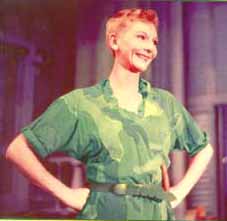Last week, in a comment thread with Bill, I mentioned a study by Emory researchers that was briefly covered in the New York Times: self-described Republicans and Democrats were shown quotations of both George Bush and John Kerry making two mutually contradictory statements:
After the participants read the contradictory comment, the researchers measured increased activity in several areas of the brain. They included a region involved in regulating negative emotions and another called the cingulate, which activates when the brain makes judgments about forgiveness, among other things. Also, a spike appeared in several areas known to be active when people feel relieved or rewarded. The "cold reasoning" regions of the cortex were relatively quiet.
The conclusion reached by the researchers:
the new research suggests that for partisans, political thinking is often predominantly emotional.
As Jon asks, taking up the study on his blog, what's the big deal?
But of course political habits are about affective fixes; and political responses are affectively conditioned before they are reasoned--or even ideological--judgements. No great surprise or scandal there.
And yet,
the reception of this study among some left-leaning bloggers has indeed been to see scandal. At Alas(A Blog), Ampersand suggests that this study demonstrates that "partisanship makes everyone stupid."
(Now, if by "stupid" we mean something like the vulnerable, even ethical, stupidity that Avital Ronell points to, the stupidity that signals a limit--well, ok. There might be something to pursue there. But that's not likely the spin being put on it here.)
At any rate, some interesting comments follow, including exchanges between Jon and a defender of rationality in the public sphere, someone who, on his web site, refers to debate.
And this debate reference put me in mind again of John's recent post about argument, where he reminds us that
Agonistic discourse in the form of productive debate is always problematic outside of face-to-face communication (and when too ritualized, such as with current US Presidential Debates, it's not that productive face-to-face, though one could argue they're not engaged in face-to-face oral communication).
and
The origins of rhetorical argument, as we all know, harkens back to ritualized face-to-face oral discourse practices of Antiquity, and that these practices, in one form or another, were a regular feature of education into the 20th Century (Ong, among others, treats this in detail in Fighting for Life). We've made do in written mediums, but written discourse isn't the best medium for debate (though various writing technologies have differing affordances and constraints).
And isn't part of what's productive about face-to-face oral debate the bodily/affective dimensions? Aren't we missing that whole dimension, reduced down to a bare-bones understanding of something called emotional appeals? As if we can only add on emotion, as if the heart of "argumentation" is something else: namely, logic.
And that's why I find the whole business of teaching argumentation so unsatisfying. We can teach students to do this paper-version of a dance (to follow templates, even), but, in doing so, we transmit a pretty fallacious (if I may invoke informal logic) sense of human dynamics--one that omits the affective and levels the field to one dimension. I'm not saying that learning the paper moves can't come in handy--I'm just saying that it's a kind of learning that cuts off what really moves us. And ultimately it's a kind of arrogant education, one that claims to offer the answer to how to win friends and influence people.
I'm going to close it here for now. I thought I would move to Alex's entry on "terminal composition," (which was itself a response to an entry from Jeff's blog, as was John's entry) but that will have to wait.








